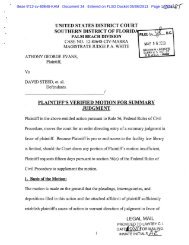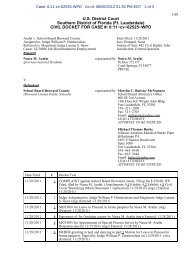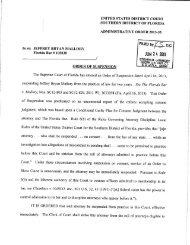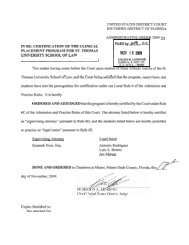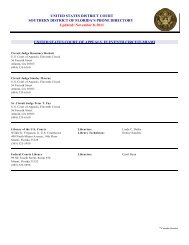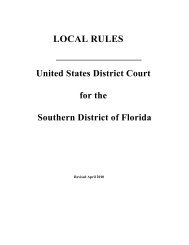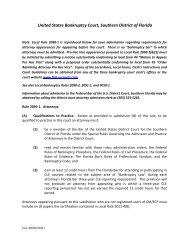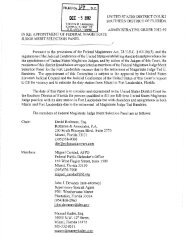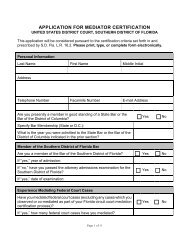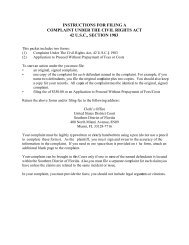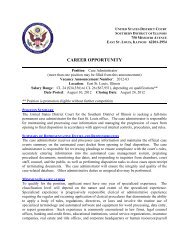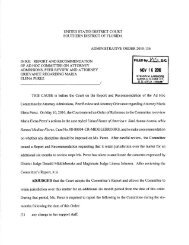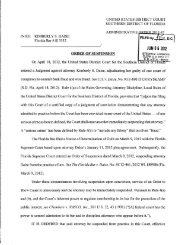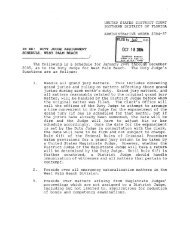JAN j 6 2010 - United States District Court
JAN j 6 2010 - United States District Court
JAN j 6 2010 - United States District Court
You also want an ePaper? Increase the reach of your titles
YUMPU automatically turns print PDFs into web optimized ePapers that Google loves.
d. The videographer shall certify the correctness and completeness of the<br />
recording, orally and visually at the conclusion of the deposition, just<br />
as would the stenographic reporter certifying a typed record of a<br />
deposition.<br />
e. Copies of the videotape recording shall be made at the expense of any<br />
parties requesting them.<br />
f. The original of the videotape recording shall be kept by the party<br />
requesting the videotape deposition and shall be preserved intact.<br />
Therefore, any editing to conform with <strong>Court</strong> rulings shall be effected<br />
through use of a copy of the original videotape recording, which shall be<br />
retained by the videographer/court reporter.<br />
g. The party presenting the videotape deposition at trial is responsible<br />
for the expeditious and efficient presentation of the testimony and is<br />
expected to see that it conforms in every respect possible to the usual<br />
procedure for the presentation of witnesses. See Federal Rule of Civil<br />
Procedure 32(a)(3).<br />
h. A transcript of the deposition (if any) as filed or modified (as the<br />
case may be) shall constitute the official record of the deposition for<br />
purposes of trial and appeal.<br />
i. Any other party may, if it so desires, arrange for its own private<br />
stenographic transcription or electronic recording at its own expense,<br />
which expense will not be taxed as court costs except upon showing of<br />
some extraordinary reason.<br />
j. Some of the procedures described herein are in addition to, not in<br />
lieu of, the portions of the Federal Rules of Civil Procedure pertaining<br />
to the recordation, transcription, signing, certification, and filing of<br />
written depositions.<br />
(2) Telephone Depositions. Telephone depositions or depositions by other<br />
remote electronic means may be taken either by stipulation or on motion<br />
and order. A deposition is deemed taken in the <strong>District</strong> and at the place<br />
where the deponent is to answer. See Federal Rule of Civil Procedure<br />
30(b) (7) .<br />
a. The deponent must swear or affirm an oath before a person authorized<br />
to administer oaths in that <strong>District</strong> and at the place where the<br />
deposition is taken, i.e. the witness may not be sworn telephonically.<br />
b. Speakers must identify themselves whenever necessary for clarity of<br />
the record.<br />
c. The court reporter should be at the deponent's location.<br />
E. Depositions of Experts. A party may depose any person who has been<br />
identified as an expert whose opinions may be presented at trial. See<br />
Federal Rule of Civil Procedure 26(b)(4)(A). However, Local Rule<br />
26.1,F.1.b(f)(1)(B) provides that an expert's deposition may not be<br />
93



